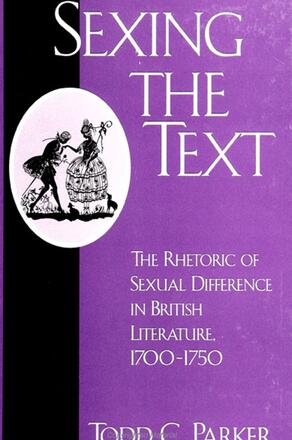
Sexing the Text
The Rhetoric of Sexual Difference in British Literature, 1700-1750
Alternative formats available from:
Charts the emergence of a new kind of heterosexual rhetoric in eighteenth-century British literature, providing a nuanced reinterpretation of gender and its role in the major genres of the period.
Description
An important contribution to the study of the history of sexuality, this book examines the emergence of a new kind of heterosexual rhetoric in the early eighteenth century, a rhetoric that ultimately displaced earlier and more diverse expressions of sexuality and the body. Drawing on traditional scholarly methods as well recent queer-theoretical perspectives, the book traces the rise of the modern paradigm of compulsory heterosexuality, and counters certain feminist assumptions about the nature of "masculinity" and "male character" during the period. Throughout, Parker offers intriguing readings of a variety of texts, including the fiercely homophobic pamphlet Onania; or the Heinous Sin of Self-Pollution, Jonathan Swift's political satires on William Wood and Richard Tighe, Alexander Pope's poems To Cobham and To a Lady, Eliza Haywood's romance novel Philidore and Placentia, and John Cleland's pornographic novel Memoirs of a Woman of Pleasure.
Todd C. Parker is Assistant Professor of English at DePaul University. He is the winner of the Rodino Prize for Swift Studies, 1997-1998.
Reviews
"Especially admirable in Sexing the Text is the author's ability to apply a specific and well-defined approach (the history of sexuality as manifested in literature) to a full range of literary texts—familiar, canonical texts; popular ephemera; texts by marginalized persons—and thereby give the reader a panoramic and yet also focused view of the period. Additionally, Parker is able to apply his approach to the investigation of different aspects of literature itself, from prosody or prose stylistics to thematic analysis to the history of the book-and-print culture. In this way he avoids turning a diverse body of writings into an allegory of an ideology; on the contrary, his readings bring out a variety and diversity previously overlooked." — Kevin L. Cope, Louisiana State University
"This is an excellent book. Its breadth is impressive, its scholarship thorough, and its argumentation clear. It will be a major statement in the on-going discourse of sexuality and gender formation in the early modern era." — James L. Thorson, University of New Mexico